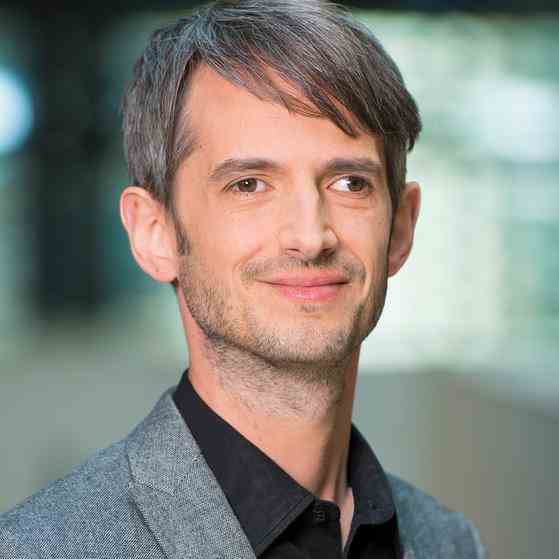Status: 13.04.2023 00:21
It is Foreign Minister Baerbock’s first visit to China – and it is likely to be one of the most delicate trips of her term of office to date. Because difficult issues abound.
Annalena Baerbock can be sure of one thing: on her first trip to China as Foreign Minister, every step, but above all every word, will be closely followed – not only in the host country. The CDU foreign politician Johann Wadephul, who is traveling with the delegation, calls for clear words, but also unity within the federal government. In conversation with the ARD Capital Studio he criticizes that the Federal Foreign Office and the Chancellor do not sing from the same sheet.
“The Federal Chancellor and the Foreign Minister have different grades at the moment, which is bad for Germany and also bad for Europe,” said Wadephul. Over the past few months, the impression has repeatedly arisen that Baerbock and Scholz stand for different degrees of severity when dealing with China.
European unity is also being put to the test. The foreign minister’s trip comes just a week after French President Macron caused irritation in the European Union after his visit to Beijing with comments on Taiwan. Quite a few understood Macron to mean that in the event of a military conflict between China and Taiwan, the EU should stand out and not support Taiwan.
“Taking a systematic look at risks”
The Chinese army only officially ended a three-day major maneuver near the democratic island republic of Taiwan on Monday. Baerbock’s hosts should listen carefully to how closed Europe is towards China and may interpret disputes as weakness. “Everything that’s out there in the way of fissures will be exploited by China,” says CDU politician Wadephul.
Baerbock is in the country for two days. China has changed, Baerbock said before departure: “After the end of the corona restrictions, I want to get a clearer picture of the course the new leadership is taking, also with a view to the tension between political control and economic openness.”
Baerbock does not see an economic decoupling in Germany’s interest. But one must “take a more systematic look at and reduce the risks of one-sided dependencies”. So: less dependency, for example with important key technologies. This is particularly true with a view to the scenario of a military escalation in the Taiwan Strait.
threatened democracy
There is no question: the relationship with China is complex. Strategy papers always talk about a triad: partner, for example in climate protection, competitor and systemic rival. These three descriptions appear to be of equal importance. But again and again Baerbock let it be known that she “increasingly” sees the rivalry between the systems as a danger. Will democracy, freedom and human rights prevail? Or authoritarianism? In the end, does the law of the strongest count internationally, or does the strength of the law count?
Baerbock’s skepticism also became visible in autumn 2022: when she – together with other cabinet members – openly positioned herself against the chancellor’s office. It was about the planned entry of the Chinese group Cosco at a Hamburg port terminal. From Baerbock’s point of view, that would send the wrong signal. The business now seems questionable, because according to research by NDR, WDR and SZ, the terminal is now classified as critical infrastructure and therefore as particularly worthy of protection.
Baerbock caused even more resentment when she reminded Chancellor Scholz from Uzbekistan before his trip to Beijing that he had to make the messages agreed in the coalition agreement clear in China. This public admonition by the Foreign Minister was not well received in the Chancellery.
Criticism from the SPD
Baerbock’s public allegations against China are also criticized in the chancellor’s party SPD. On the same day that the Foreign Minister left for Asia, parliamentary group leader Rolf Mützenich said in the ARD morning magazinethat he did not want to give her any public advice, only to point out that Baerbock as a person was received “with a certain skepticism” in Beijing: “She got involved in this situation very undifferentiatedly – at least from China’s point of view.”
It is Baerbock’s ministry that is in charge of developing a China strategy for the federal government. A draft that became public in November had triggered sharp criticism in China. There were obviously also different ideas between the Foreign Ministry and the Chancellery. A unified version is not yet available. However, it can be heard that the current version is worded less sharply.
How openly will Baerbock criticize the Chinese leadership now that it is in the country itself? Can at least a small swing in one direction or the other be read from this?
Mikko Huotari, director of the Mercator Institute for China Studies, assumes that Baerbock is also repeating well-known EU and G7 positions in China that could be perceived as unfriendly by the Chinese government. However, that is no real surprise. In conversation with the ARD Capital Studio Huotari emphasized that it was an inaugural visit: “It’s also about listening, addressing things clearly, but not necessarily communicating with the loudspeaker right away.”
Partnership or rivalry? Baerbock’s tricky trip to China
Markus Sambale, ARD Berlin, April 12, 2023 11:33 p.m


